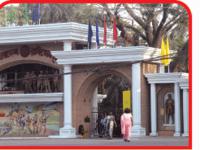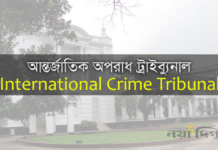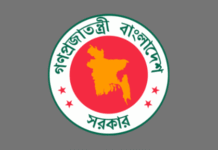There are no visible signs of the horrors at Peelkhana, but wounds in the hearts of the families remain open. Seven years ago (2009) on this day (25 February), rebelling jawans went berserk in Peelkhana. These soldiers went on a rampage, killing 74 persons, including 57 army officers.
Over the past seven years, the forces’ own tribunal has completed its trial. The lower court has finished its trial of the murder case filed in this connection. Even so, questions remain in the air.
It has been propagated that the rebellion was a result of the jawans’ pent up ire, but the questions remain in the public mind concerning the motive behind the brutal killings. The masterminds behind the plan remain anonymous.
The director general of the Border Guard Bangladesh (BGB) Genral Aziz Ahmed told Prothom Alo, “I was involved in the trial procedures. All those involved in the rebellion have been tried. However, there are many speculations which even I had heard before joining BGB. Actually whatever motivated the rebellion has been made clear.”
After the BDR killings, the home ministry formed an inquiry committee and the army set up an inquiry court. The two committees conducted investigations and made certain recommendations to prevent such occurrences in the future. The committees recommended further investigation to find out the actual motive behind the uprising. That was not done. The families of the killed persons are not convinced by the motives suggested by the police.
The government formed an inquiry committee headed by former government official Anis Uz Zaman regarding the 25-25 February 2009 BDR uprising in Peelkana. The committee took up work from 3 March 2009. After extending their time four times, the committee finally submitted its inquiry report to home minister Sahara Khatun on 3 March 2009.
The committee made 23 short and long term recommendations. The short-term recommendations included, speedy trial through military law, retrieving control over BDR, rehabilitation of the families of the deceased ones, identification of the unidentified bodies, recovering missing arms, and providing compensation to the injured army and civil persons.
The long-term recommendations included formation of a highest level committee for national crises.
It was also recommended that action be taken against those who had failed to take timely decisions to uncover the conspiracy and quell the rebellion. So far no such measure has been taken. A national level committee has been formed, but no action has been taken regarding the failure to gather information in advance regarding the rebellion. Neither has anything been done about forming a rapidly deployable force comprised of personnel from the three forces.
BDR killing case’s investigating office Abdul Kahar Akhand told Prothom Alo, the uprising was sparked off by anger among the jawans. There is no evidence of anything outside of this. The charge sheets have been issued on the basis of whatever was revealed through the investigations. The trial is complete and that is it.
However, Ain O Salish Kendra’s executive director Sultana Kamal yesterday said at a programme at the national press club, “This was such a bog incident, yet we have not even started a proper trial. Inquiry committees were formed, but they have to clearly presented their reports. Does that me we cannot conduct investigations, or do not want to do so?”
After the BDR incident, the army formed an inquiry court headed by the Quarter Master General at the time Lt. Gen. Mohammed Jahangir Alam Chowdhury. On 11 May 2009 the court handed over their report o the army chief General Moeen U Ahmed. The report’s recommendations included death sentence for rebellion in any of the forces.
In the meantime a new law was made for BDR, imposing death sentence for rebellion. Recommendations were made to modernize, upgrade, provide specific responsibilities and restructure the intelligence agencies. Certain officers were transferred after the incident.
BGB DG Major General Aziz Ahmed told Prothom Alo, many committees within and outside of the army were formed after the BDR incident. The recommendations of all the committees were taken into cognizance. He said, the Guard Security Unit had been rendered more dynamic and there was coordination between the intelligence agencies DGFI and NSI.
At a programme in the national press club yesterday, father of the killed Colonel Kudrat Elahi Rahman, Habibur Rahman, said, “The families of the martyrs want to know why this brutal killing took place. Who planned it? The people want to know.”
At the programme, Sultana Kamal said, “We do not see the end to this. We cannot bring about closure. As a nation, the burden remains upon us.”
Source: Prothom Alo










